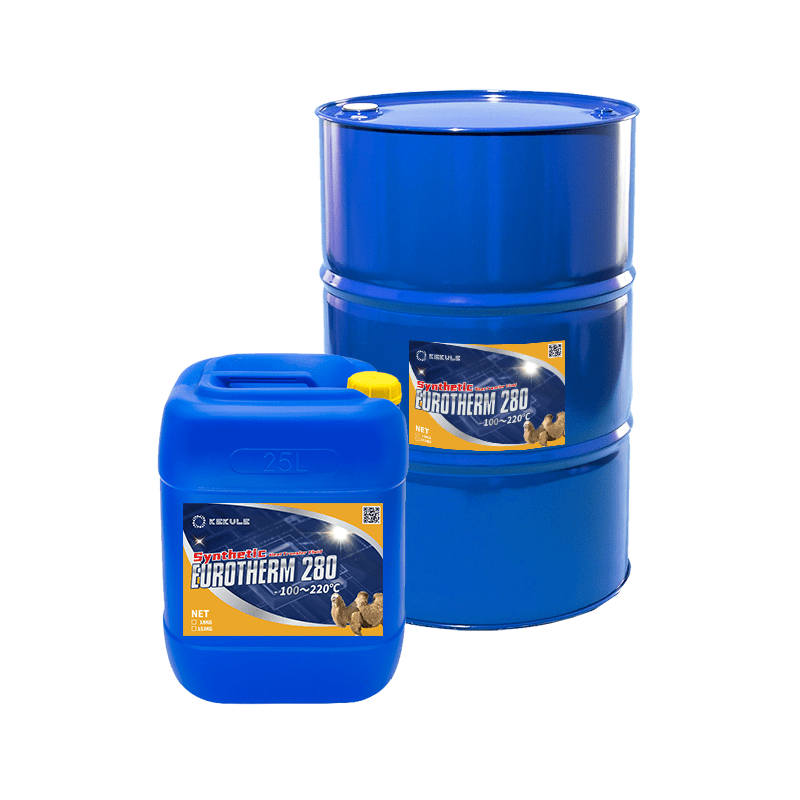How Heat Transfer Fluid Effects the Effectiveness of A/c Systems
How Heat Transfer Fluid Effects the Effectiveness of A/c Systems
Blog Article
Why Warmth Transfer Fluid Is Necessary for Optimizing Power Transfer in Equipment
The duty of warm transfer liquids in optimizing power transfer is crucial for attaining effective thermal monitoring across various commercial industries. These fluids assist in seamless warm exchange, making certain procedures run within optimal temperature level ranges and reducing the threat of getting too hot.

Duty in Thermal Administration
Warmth transfer liquids play an important duty in thermal administration by efficiently controling temperature levels in numerous commercial procedures and systems. These specialized fluids promote the transfer of warm in between various components, making certain ideal operating problems and stopping overheating. By maintaining specific temperature control, warmth transfer liquids allow industries such as chemical production, oil and gas, and power generation to operate securely and efficiently.
The selection of an ideal warmth transfer fluid depends on numerous variables, consisting of thermal stability, warm capability, and thickness. High thermal stability makes sure that the fluid can stand up to severe temperatures without degrading, while a high warm capability permits it to take in and release considerable quantities of heat - heat transfer fluid. Reduced viscosity decreases the energy required for pumping, adding to total system performance
Additionally, warmth transfer liquids are integral in applications like refrigeration, where they assist soak up and dissipate heat during the cooling cycle. In solar thermal power systems, these liquids capture and transportation solar warmth to generate electricity or give hot water. Their adaptability to diverse operating problems and capability to maintain regular thermal efficiency highlight their significance in commercial thermal administration, assisting in functional continuity and enhancing precaution.
Enhancing System Performance
To optimize the benefits of thermal management, improving system efficiency with the critical use of warmth transfer liquids is critical. By keeping ideal temperature level levels, warmth transfer liquids help make sure that systems operate within their created parameters, thus avoiding overheating and decreasing the danger of part failing.

Types of Warmth Transfer Fluids
The diversity of heat transfer liquids emphasizes their visit this website crucial role in a range of commercial applications, each customized to Source meet certain thermal management needs. These liquids promote effective energy transfer and are chosen based on crucial residential or commercial properties such as thermal security, viscosity, and warm ability. The key kinds consist of water, glycol options, oils, and synthetics, each offering distinctive advantages.
Water is the most usual warmth transfer medium due to its high specific heat ability and low cost. Mineral oils are preferred for their thermal stability and non-corrosive nature, making them appropriate for high-temperature applications.

Artificial liquids, including silicone and fragrant compounds, provide outstanding thermal security and are made use of in environments requiring severe temperature arrays. These liquids make sure premium performance in systems where typical liquids may stop working. The selection of a heat transfer liquid is vital, as it influences system performance, safety, and longevity. Each kind should be selected to align with the operational needs and the particular conditions of the application it offers.
Environmental and Economic Perks
Making use of the right heat transfer liquids provides significant ecological and financial benefits for commercial operations. By selecting liquids with exceptional thermal security and high heat ability, markets can enhance power performance, leading to lowered gas usage and lower greenhouse gas discharges. This adds to a smaller carbon impact and straightens with international sustainability objectives. Eco-friendly warmth transfer fluids, usually biodegradable and non-toxic, Get More Info decrease the risk of dirt and water contamination in the event of leaks or spills, consequently securing environments and adhering to rigorous environmental laws.
Economically, the best warm transfer liquid can considerably reduce functional expenses. Fluids with extended lifecycle performance lower the frequency of substitutes and maintenance, reducing downtime and associated prices. Overall, the critical usage of optimum heat transfer fluids sustains lasting economic growth and ecological stewardship.
Selecting the Right Liquid
Just how does one navigate the complicated process of selecting the best heat transfer fluid for commercial applications? Thermal security makes sure the liquid can withstand high temperature levels without degrading, while compatibility stops corrosion or other destructive responses with system parts.
Furthermore, the liquid's warmth ability and viscosity are vital. A high warmth capacity allows the liquid to soak up and transfer even more power, improving effectiveness. At the same time, optimal viscosity makes certain minimal pump work and effective heat transfer, particularly in differing temperature levels. Environmental and safety and security aspects ought to also belong to the decision-making process. Safe, naturally degradable fluids reduce ecological effect and adhere to regulative standards, lessening responsibility dangers.
Verdict
The strategic selection and application of warm transfer fluids are essential to optimizing energy transfer across numerous systems. By ensuring high thermal stability and capacity, these fluids provide precise temperature control and improve overall system effectiveness. This optimization adds to reduced functional expenses and reduced greenhouse gas exhausts, therefore advertising sustainability. The choice of fluid, tailored to particular thickness and functional needs, is vital for making the most of efficiency and accomplishing economic and environmental advantages in industrial processes.
Report this page